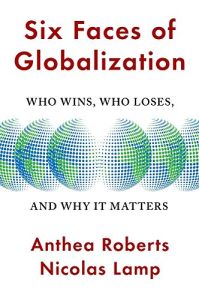Join getAbstract to access the summary!

Join getAbstract to access the summary!
Nicolas Lamp and Anthea Roberts
Six Faces of Globalization
Who Wins, Who Loses, and Why It Matters
Harvard UP, 2021
What's inside?
Addressing the downsides of globalization is complex – much like a puzzle.
Recommendation
In this study of globalization post-Trump, Brexit and COVID-19, academics Anthea Roberts and Nicolas Lamp assess the state of the debate. They add life to what could be a ponderous topic by identifying the main schools of thought about globalization and likening each to one side of a Rubik’s Cube. It’s a metaphor that frames a complicated issue and underscores the human tendency to oversimplify complex problems. The authors’ solutions are equally metaphorical, but theirs is still a worthwhile take on a critical subject.
Summary
About the Authors
Anthea Roberts is a professor in the School of Regulation and Global Governance at Australian National University. She is the author of Is International Law International? Nicolas Lamp is an associate professor of law at Queen’s University, Ontario.

















Comment on this summary